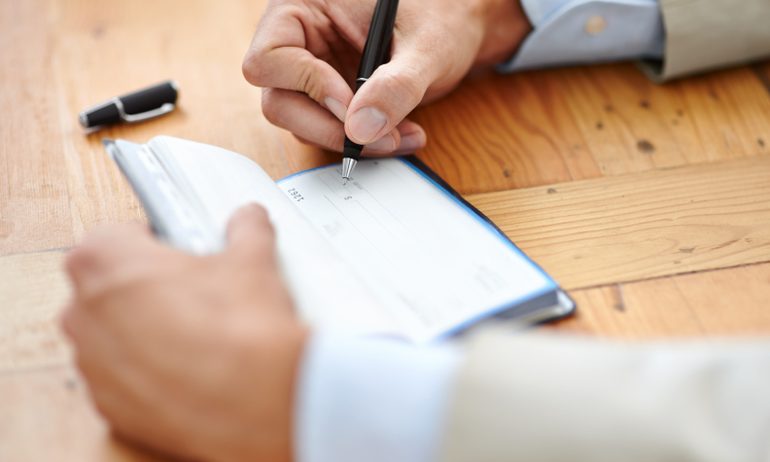Postdating Checks Is a Waste of Time — Here’s Why

Many, or all, of the products featured on this page are from our advertising partners who compensate us when you take certain actions on our website or click to take an action on their website. However, this does not influence our evaluations. Our opinions are our own. Here is a list of our partners and here's how we make money.
You're writing a check to your landlord, but you don't have enough money in your account. So you date the check a few days in advance — also called postdating it — hoping your paycheck will clear by then.
Bad news: The check date won't delay anything; your landlord can still cash the check as soon as they receive it. Here's what you need to know about postdating and what you can do instead.
» MORE: How to write a check
Is it illegal to postdate a check?
“From a criminal law perspective, there is nothing inherently illegal about postdating a check,” says Eric Hintz, a criminal defense attorney in Sacramento, California.
Hintz says that only criminal intent, such as intentionally not having enough money for a payment, can be grounds for check fraud.
However, postdating a check can lead to inconveniences and ill feelings for the payee, such as when a tenant sends a rent check and may or may not have the funds ready to be withdrawn.

on Chime®'s website
Chime® Checking Account

N/A
$0

Member FDIC
Varo Bank Account

N/A
$0

Member FDIC
E*TRADE Max-Rate Checking

2.00%
$15
What are bank rules on postdated checks?
Banks and credit unions generally state rules about postdated checks in their account disclosures. Some of the biggest banks, for example, note specifically that they can honor checks that are made out for future dates.
The Uniform Commercial Code, a collection of business laws adopted or adapted by many states, gives financial institutions the right to process a correctly written check with a future date. But you can ask your bank to delay cashing a specific check, and, depending on your state and the bank, it might comply.
What’s the worst that can happen if I postdate a check and it gets cashed?
If you write a check and don't have enough money in your account when it's cashed — whether or not it's postdated — your bank can cover the payment or let the check bounce based on its overdraft policy. If the check goes through, you'll pay an overdraft fee. If it doesn't go through, the recipient might charge you late fees and a bounced-check fee. But usually it doesn’t get much worse.
If you are concerned about overdrafting — and you'd rather not deal with a returned check and your landlord's ire — consider switching to a bank with a solid overdraft policies.
How do you delay or stop a check payment?
Consider these three strategies:
Talk to the recipient. Tell the person receiving your check — your landlord, a merchant, a friend or family member — about your situation. Find out if he or she will accept payment later.
Schedule an electronic transfer, such as an online bill payment. This is a much more precise way to make future payments, and you won't risk sending money before you're ready.
Request a stop payment. Your bank provides this service, usually for a steep fee, but you must give it notice. The amount of notice depends on your bank.
» MORE: How to cancel a check
It's risky to rely on postdating or processing delays to ensure your check clears. Financial institutions now send digital pictures of checks to other financial institutions, so they can be cashed more quickly.














